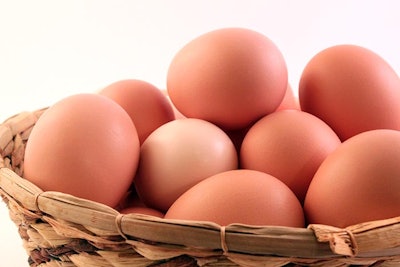
Colorado Gov. Jared Polis last week signed a bill into law that will eventually require all eggs produced and sold in the state to come from cage-free laying systems.
Under the new law, effective January 1, 2023, hens cannot be confined in enclosures with less than one square foot of usable floor space per hen.
Effective January 1, 2025, hens in cage-free housing systems must have at least one square foot of usable floor space per hen if the hens have unfettered access to vertical space, or one and one-half square feet of usable floor space per hen if the hens to don’t have unfettered access to vertical space.
HB20-1343 also prohibits businesses from selling eggs not produced according to the aforementioned standards, effective January 1, 2023.
With the signing of this bill, Colorado joins California, Oregon, Washington, Massachusetts, Rhode Island and Michigan as states with cage-free egg laws in place. Some of these laws have been approved by the states’ legislative bodies, while others have been approved by a ballot initiative.
Under ordinary circumstances, people think that a bill that is been passed into law addresses an issue that is deemed very important by at least a portion of the state’s residents, or at least one political party. However, that was not the case with this law, as was reported by The Colorado Sun.
Those in the animal agriculture industry are aware than many business decisions to eliminate cage-produced eggs from the supply -- or state laws to keep cage-produced eggs from being raised or sold in the state -- have little to do with consumer or constituent desires. Instead, it is often a reaction to get animal rights group off their backs so they can get on with everyday business. But that message doesn’t always get out. However, some Colorado lawmakers set the record straight in that Sun report.
According to the Sun, Colorado legislators were told that if they didn’t pass the law, World Animal Protection – an animal rights group based out of New York – would push a ballot measure it wanted to put before voters in November. If such a ballot measure would have been given a chance to exist, egg producers would have been asked to transition to cage-free production much earlier -- by the end of 2021. It would have also done away with veal crates and gestation stalls for sows.
The bill’s sponsor, Rep. Dylan Roberts, D-Avon, said the bill that became law – HB20-1343 – wasn’t something he wanted. Instead, it was a “Colorado solution” to intrusion from out-of-state activists, and fear that their campaign would convince voters to approve a measure that would be even more disruptive to the state’s egg industry.
At least two other legislators also voiced frustration with the situation.
Rep. Richard Holtorf, R-Akron, called World Animal Protection’s campaign, “an assault on Colorado,” that especially hurt the poor. Rep. Jeni Arndt, D-Fort Collins, said she worried about the precedent the egg law would set when dealing with threats from outside interests.
This report from the Sun was very telling, and conveyed a story that needed to be told. If everyone knew of the history that led to the cage-free revolution, suddenly such “animal welfare issues” might be looked at differently and, therefore, be voted on differently.
















